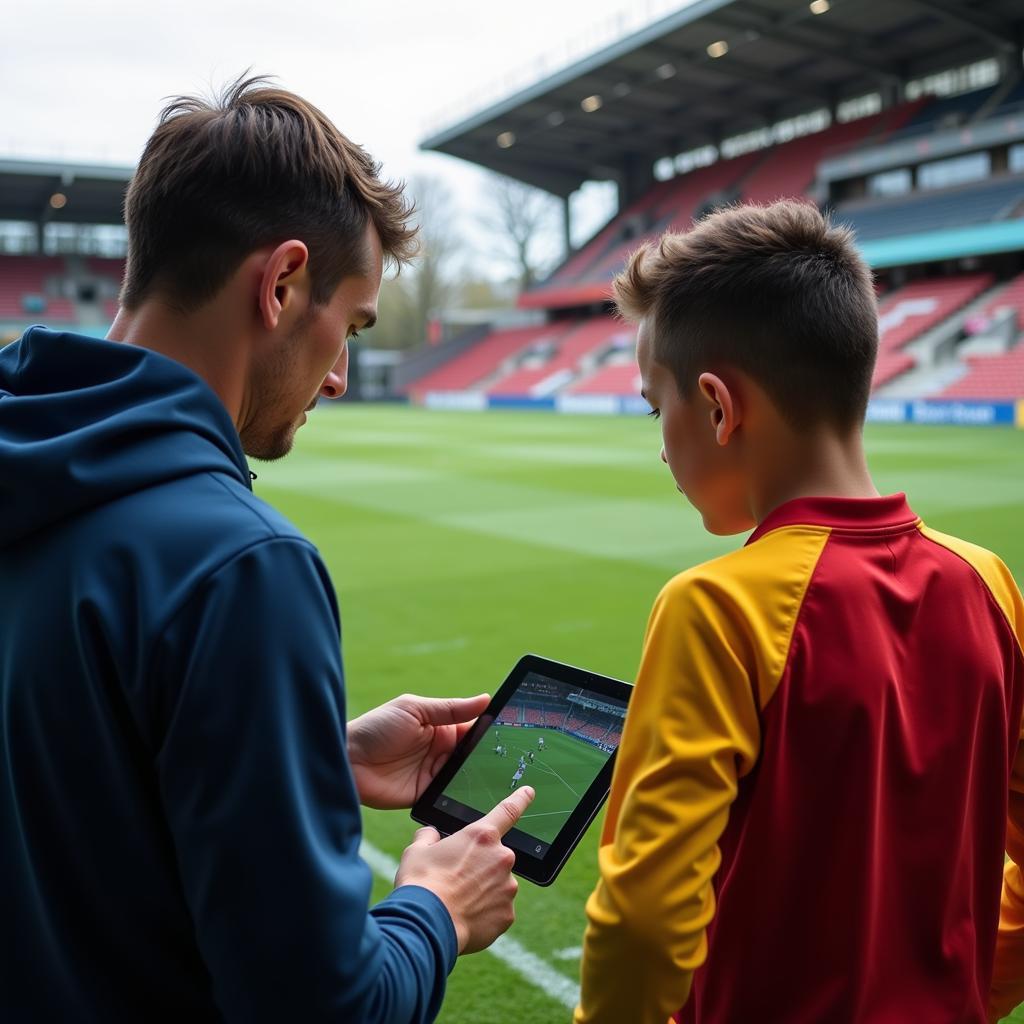Decoding the Personalities of New Football Players
November 3, 2024The modern football landscape is constantly evolving, with new players emerging every season. Understanding the personalities of new football players is crucial for coaches, teammates, and fans alike. This article delves into the various personality traits observed in upcoming footballers and how these traits influence their performance and integration within a team.
The Impact of Personality on Performance
A player’s personality can significantly impact their on-field performance. Confident players are more likely to take risks, try audacious shots, and drive their team forward. Disciplined individuals excel at adhering to tactical instructions and maintaining composure under pressure. However, an overly aggressive personality can lead to fouls and disciplinary issues, hindering the team’s progress. Resilient players bounce back from setbacks quickly, while those lacking emotional stability may struggle to regain their composure after a missed opportunity or a conceded goal.
 Confident Footballer Taking a Shot
Confident Footballer Taking a Shot
Different playing styles also correlate with certain personality traits. Creative midfielders often possess a high degree of open-mindedness and are willing to experiment with unconventional passes and plays. Solid defenders, on the other hand, tend to be more conscientious and focused on maintaining defensive stability. Teamwork and communication are essential in football, and players with strong interpersonal skills are valuable assets in fostering a positive and collaborative team environment.
Navigating the Challenges Faced by New Players
New players often face numerous challenges, including adapting to a new environment, integrating into an established team dynamic, and dealing with the pressure of expectations. Their personality plays a crucial role in how they navigate these challenges. Adaptable individuals can quickly adjust to new training regimes, playing styles, and living arrangements. Those who are open to feedback and willing to learn from experienced players can accelerate their development and integration into the team.
Mentally strong players can handle the pressure of competition and maintain focus despite setbacks. Effective communication is vital for new players to express their needs, build relationships with teammates, and understand the team’s expectations.
Personality Assessment and Player Development
Many clubs now incorporate personality assessments as part of their player recruitment and development strategies. These assessments help identify strengths and weaknesses in a player’s personality, allowing coaches to tailor their training approaches and create personalized development plans. Understanding a player’s personality also helps in optimizing team dynamics and fostering a supportive environment.
For example, John Smith, a renowned sports psychologist, states, “Understanding a player’s personality is as crucial as understanding their physical attributes. It’s the key to unlocking their full potential.”
tên các cầu thủ ghép lại thành tên của messi
How Can Coaches Utilize Personality Insights?
Coaches can use personality insights to:
- Improve communication and build stronger relationships with players
- Tailor training methods to suit individual learning styles and motivational factors
- Optimize team dynamics by creating a balanced mix of personalities
- Identify potential leadership qualities and develop future captains
- Provide targeted support and guidance to players facing specific challenges
 Coach Mentoring Young Player
Coach Mentoring Young Player
Conclusion
The personalities of new football players are a multifaceted and influential factor in their performance, development, and integration within a team. Understanding these personalities is essential for maximizing player potential, building strong teams, and achieving success on the field. By recognizing the impact of personality, coaches and clubs can create a more supportive and effective environment for nurturing the next generation of football stars.
FAQ
- How does personality affect a football player’s performance?
- What challenges do new players face due to their personality?
- How can personality assessments benefit player development?
- What are the key personality traits of successful football players?
- How can coaches use personality insights to improve team dynamics?
- Are there different personality types associated with different playing positions?
- How can new players develop their personality to thrive in a competitive environment?
Common Scenarios:
- Scenario 1: A shy, introverted player struggles to integrate with his new team.
- Scenario 2: An overly aggressive player repeatedly commits fouls and receives yellow cards.
- Scenario 3: A confident and resilient player bounces back from a missed penalty to score the winning goal.
Suggested Further Reading:
Need further assistance? Contact us 24/7. Phone: 0396443476, Email: [email protected], or visit us at: 23 Tháng 3, Đắk Nia, Gia Nghĩa, Đắk Nông, Việt Nam. We’re here to help!